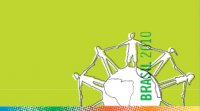

Accueil
Publié le 3 décembre 2007
Traductions disponibles en :
Português do Brasil .
Español .
Cronograma - Expected results
Thèmes forts liés :
Education et responsabilité .
Environnement et responsabilité .
Thèmes généraux liés :
Enfants .
Éducation .
Éducation à l’environnement .
Écoles .
Enseignants .
Jeunes .
Cronograma
2007 - Establishment of Agreements for International Cooperation between Brazil, the participating countries and the partners
![]() Formation, in each country, of a Coordination Group composed by three instances, or a tripod : Government (Ministries of Education, the Environment and others, as Culture, Science and Technology…), University and Civil Society (NGOs and Youth Movements).
Formation, in each country, of a Coordination Group composed by three instances, or a tripod : Government (Ministries of Education, the Environment and others, as Culture, Science and Technology…), University and Civil Society (NGOs and Youth Movements).
![]() Transference of social technology of the Conference and its adaptations to local realities.
Transference of social technology of the Conference and its adaptations to local realities.
2008 - World-wide launching
![]() Collective definition, with the Managing Groups, of the rules for the Conference and proposal of educational materials
Collective definition, with the Managing Groups, of the rules for the Conference and proposal of educational materials
![]() Support of the Ministries of Education and the Environment of each country to the schools for the organization of Conferences in the Schools
Support of the Ministries of Education and the Environment of each country to the schools for the organization of Conferences in the Schools
![]() Launching of the International Conference in 5 June 2008 (World Day of the Environment),
Launching of the International Conference in 5 June 2008 (World Day of the Environment),
2009 - Conferences in the Schools and National Children’s - Conferences for the Environment
Holding Conferences in the Schools followed by National Conferences in each country, with clear procedures of thematic debates, collective construction of a Charter of Responsibilities, participation of delegates from the schools and the election of the delegation of the country for the International Conference of 2010.
2010 - International conference (July)
![]() Multicultural meeting of democratically elected delegations from all the participating countries. The International Conference will elaborate an International Charter of
Responsibilities “Let’s take care of the Planet”, a synthesis of the commitments assumed by the children for the construction of sustainable societies.
Multicultural meeting of democratically elected delegations from all the participating countries. The International Conference will elaborate an International Charter of
Responsibilities “Let’s take care of the Planet”, a synthesis of the commitments assumed by the children for the construction of sustainable societies.
Expected results
![]() Participation of 5% of elementary schools (5th to 8th grades or equivalent) in the participant countries.
Participation of 5% of elementary schools (5th to 8th grades or equivalent) in the participant countries.
![]() Creation of the International Charter of Responsibilities “Let’s take care of the Planet”.
Creation of the International Charter of Responsibilities “Let’s take care of the Planet”.
![]() Planting of native trees around the Planet.
Planting of native trees around the Planet.
We expect to constitute an integrated policy in order to make possible the transfer of social technologies, the coordination, management as well as some financial support for enabling the national processes of the National Children’s Conferences on the basis of a triangular vision : South - North - South.


